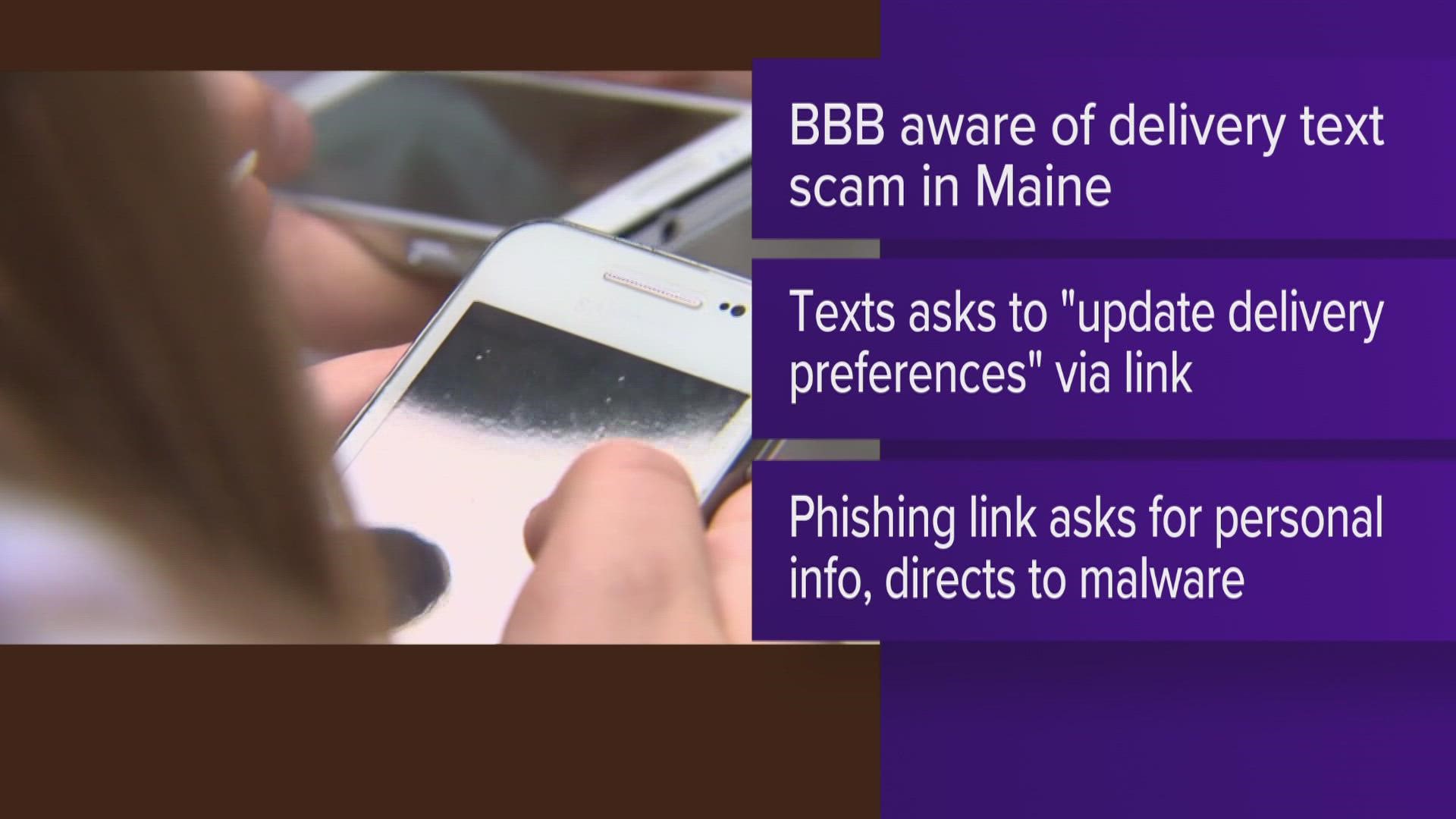MAINE, USA — The Better Business Bureau is warning people about delivery scams after customers have been targeted through text messages.
The phone messages appear to come from an official delivery carrier like UPS, FedEx, USPS, or Amazon and ask customers to update delivery preferences on a package by clicking on a link, according to an email by BBB spokesperson Paula Fleming. The text is a scam, and the scammers use the link to steal your personal information, Flemming added.
According to the BBB, these are the most popular delivery scams to look out for:
1. Texts or emails that appear to come from official delivery companies
They contain a "tracking link," a message that the shipper is having difficulty delivering a package to you, or a link to update delivery preferences.
Fleming said clicking on the link either takes you to a form that asks for personally identifying information or to a site that downloads malware onto your computer.
2. Fake "missed delivery" tags
Scammers leave a note on your door claiming they are having difficulty delivering a package to you. They leave you a phone number to call and reschedule your delivery, but it's another avenue to get your personal information.
3. Package Theft
Scammers will steal your packages before they arrive home from work by following delivery trucks around.
Ways to avoid delivery scams, according to BBB:
1. Take precautions to ensure a safe delivery
You can purchase shipping insurance or get a tracking number for your purchases and keep track of the check shipping progress.
2. Watch out for texts, calls, or emails about a missed delivery
Legitimate delivery services usually leave a "missed delivery" notice on your door. If you get one, check it for authenticity before following instructions.
3. Request a signature
Delivery service won't be able to drop a package on your doorstep unless someone is around to sign for it.
4. Don't leave packages sitting on your doorstep
5. Open your delivery upon receipt to check for damage or signs of tampering

